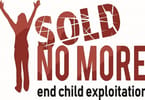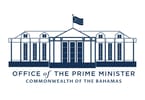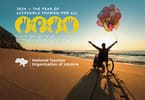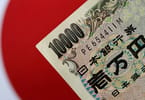U.S. Bancorp and American Express Co. are squaring off for a marketing battle that will be waged with reward programs but could be won on reputation.
At stake is the business of millions of frequent flier cardholders. This is the type of customer that issuers covet: creditworthy big spenders who are willing to pay an annual fee for miles.
According to conventional wisdom, U.S. Bancorp should be the underdog. It lost a 14-year cobranding contract with Northwest Airlines Corp. after the carrier was acquired by Delta Air Lines Inc., which has a longtime cobranding partner in Amex.
And Monday Amex plans to unveil a wide-ranging, multimedia advertising campaign to persuade U.S. Bancorp cardholders to switch to its Delta SkyMiles cards.
“It will be full surround-sound, on television, on radio, online, on banners in airports,” David Rabkin, the vice president of Delta consumer cobrands for Amex, said in an interview last week. “We’ll be pretty loud throughout the summer.”
But industry experts are reluctant to count U.S. Bancorp out. The Minneapolis company is converting the Northwest WorldPerks card accounts next month to a multiple-airline reward program. Such programs are often less attractive to frequent fliers, because they cannot combine miles earned from the card with miles earned from an airline, but U.S. Bancorp is positioning its new “FlexPerks” program as a response to consumer frustrations with traditional airline rewards — and with flying in general. For example, on flights purchased with reward points, U.S. Bancorp will credit cardholders up to $20 for “nuisance fees,” such as checked-baggage or food charges.
“We’re in effect reallocating the revenues that otherwise would have been shared with an airline, and we’re re-investing those dollars to enable our customers to get on planes,” said John Owens, the senior vice president of retail payment solutions at U.S. Bank. “Are we going to lose some customers? Yeah, but we’re probably going to gain some new customers that have an affinity for the value proposition that we’re putting out in the marketplace.”
Observers said such features will reinforce U.S. Bancorp’s image as a sound and consumer-friendly institution at a time when Amex’s finances and reputation have deteriorated, at least in the public eye.
“This is kind of an economy of austerity and back to basics, and in a good way, U.S. Bank is a back-to-basics bank. And I think consumers get that about their brand,” said Campbell Edlund, the president of EMI Strategic Marketing Inc., which advises financial institutions. “Almost all bank and credit card brands are pretty battered, but in the current battering, U.S. Bank has done very well.”
On the other hand, American Express “is a luxury brand, and that may be a challenge they have to work with in this environment,” Edlund said.
Amex has attracted a high degree of criticism in the past year for cutting credit lines, raising interest rates and, in one highly publicized case, offering some cardholders $300 to close their accounts.
“We have gotten attention this year for some of the actions that we’ve done,” Rabkin said. “We want our customers to continue to push us to that higher standard.”
Amex is “pivoting” its marketing tactics to address consumer concerns about spending during the recession, which are affecting even the company’s wealthy core customers, he said.
“We’re definitely emphasizing the rational versus the emotional to a greater extent this year than we have in the past,” Rabkin said. “It’s not even a question of whether someone is a high earner or a high spender. I think people don’t want to engage in spending that they see as frivolous. And so, rather than talk about the wonderful luxury destinations that they could go to, we want to talk about the amount of those destinations and the utility of destinations and the frequency of flights and departures.”
He would not say how much Amex is spending on the new campaign, except to call it a significant investment, despite the decision to pull back overall marketing spending this year.
“Obviously, this economy is not an easy one, but this is about a long-term partnership,” he said. “This really is a critical moment.”
The pressure on Amex is heightened by the fact that it did not buy the WorldPerks portfolio, so it must persuade Northwest cardholders to apply for a new card instead of using the FlexPerks card that U.S. Bancorp will send them automatically.
Delta has sent Northwest frequent fliers e-mail warning them not to “activate a generic travel credit card to replace the WorldPerks credit card.” And some of the print ads in Amex’s new campaign are dominated by the word “SWITCH,” next to a picture of the Delta SkyMiles gold card.
Executives at U.S. Bancorp expressed little concern over the e-mail.
“Consumers are smart. They will look at our product versus what’s being offered by the competition, and we’re very comfortable that our product stacks up very well and is superior to the other offers in the marketplace,” Owens said. “This is all about customer choice, and we believe we’re positioned very strongly to not only retain the existing WorldPerks Visa customer base, but to attract new customers, as well.”
His company is fully exploiting its home court advantage. Starting next month U.S. Bancorp will send the FlexPerks cards to all current WorldPerks customers who are in good standing. (Owens would not say how many cardholders that entailed.)
The customers’ account numbers will not change, so they will be able to continue using the cards for automatic bill payments. For the Visa Signature version of the FlexPerks card, U.S. Bancorp will waive the first year’s annual fee of $49. (Amex also waives the first annual fee for its Delta SkyMiles cards.)
WHAT TO TAKE AWAY FROM THIS ARTICLE:
- He would not say how much Amex is spending on the new campaign, except to call it a significant investment, despite the decision to pull back overall marketing spending this year.
- On the other hand, American Express “is a luxury brand, and that may be a challenge they have to work with in this environment,”.
- “This is kind of an economy of austerity and back to basics, and in a good way, U.






















